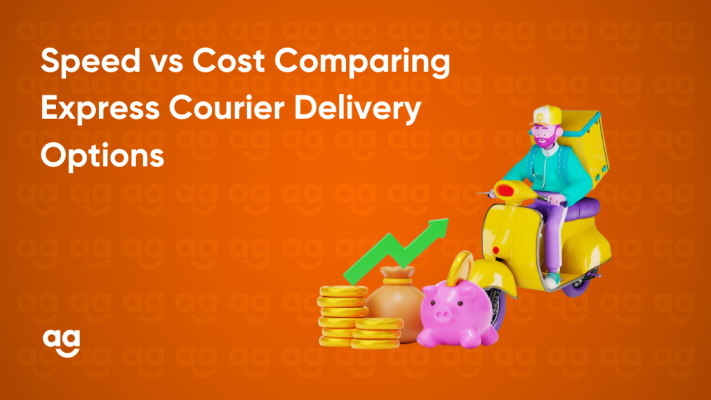Planning Pays Off: 5 Strategies to Get the Most Out of Your Delivery Speed Choice
April 17, 2025
5 min read
Efficiency of Bulk Shipping for eCommerce Business
Many businesses are looking to optimize their shipping process as the eCommerce industry continues to flourish.
One such optimization that can help significantly lower the operating overhead is shipping products in bulk. However, it is essential to consider the advantages and disadvantages to see whether this is a good fit for the selected company.
This blog provides insight into bulk shipping for eCommerce to help you determine whether it is the right fit for your business.

What is Bulk Shipping?
Consolidating several small shipments into one large item for transportation is known as bulk shipping. This option is quite cost-effective for those in the eCommerce industry who regularly ship many things to different regions.
Several shipping firms allow customers to combine several small cartons into one large package for a lower price.
Pros of Bulk Shipping
Here’s how bulk shipping can be beneficial for your eCommerce business:
Cost Savings
- Bulk carrier shipping companies frequently provide substantial price reductions for larger parcels during transit.
- Consolidating several packages helps reduce the amount of packaging materials required, resulting in cost savings.
- Packaging and shipping individual items require less time and effort, decreasing labor costs.
Improved Efficiency
- Consolidating shipments into one larger shipment streamlines the shipping process.
- A bulk carrier company can process larger shipments more efficiently, leading to quicker delivery times.
- Fewer individual shipments mean fewer opportunities for mistakes or delays.
Enhanced Sustainability
- Fewer individual shipments can help reduce your business’s overall carbon footprint.
- By minimizing packaging materials, you can contribute to a more sustainable future.
Cons of Bulk Shipping
Besides the advantages, let’s explore the limitations of making an informed decision:
Increased Initial Costs
- You may need to invest in additional storage space to accommodate bulk transport.
- Businesses may have to buy special packaging supplies for large orders even though the total packaging expenses go down later.
Complexity
- Managing larger shipments can be more complex than handling individual packages.
- You may need to adjust your insurance coverage to account for the increased value of bulk shipments.
Potential for Damage
- Larger shipments are more prone to damage during transit, especially when not packaged properly.
When is Bulk Shipping Right for You?
Bulk shipping can be considered as an effective choice in the following situations:
When You Have Large Shipments Frequently
Combining numerous orders into bulk shipments can greatly lower shipping expenses if you consistently receive orders.
When You Have Adequate Storage Space
It enables effective packaging and shipping processes. Be sure you have enough storage space and packaging materials to handle large shipments.
When You Have Reliable Shipping Providers
Establishing a solid relationship with a dependable transporter can streamline the shipping procedure. A good rapport with dependable shipping providers to simplify the shipping procedure.
To Summarize
Using a bulk shipping strategy can help businesses cut expenses and increase productivity. To determine whether it’s the best option for your company, you must weigh the advantages and disadvantages.
Shipyaari is a leading name in B2B logistics. Partner with us today to experience the benefits of efficient bulk shipping and reduce your shipping costs. Contact us for all your shipping needs.
Frequently Asked Questions
The cost of bulk shipping depends upon the number of shipments, the distance covered, and the carrier’s pricing policies. Many carriers have provisions for business agreements regarding bulk shipments. Some carriers provide free online tools or calculators to enable the shipper to estimate total shipping costs.
Employ strong and sturdy materials to pack and protect your goods against movement during transportation or shipping. Use the space available in the shipping container as much as possible to reduce shipping costs.
Secure packaging encases the goods to be shipped. Security measures can also include tamper-evident seals or tracking devices incorporated on the parcel to trace the shipment. Carrying out operations with a reliable and trustworthy carrier with adequate security measures eliminates most risks.
Evaluate bulk shipping with the help of KPIs like shipping costs, damage rates, and delivery times.
Suggested Reads
Hyperlocal Personalization: Tailoring Experiences for Local Customers
Introduction The eCommerce industry in India has witnessed a rapid growth of hyperlocal services in
Continue ReadingDec



















 Shipping
Shipping







